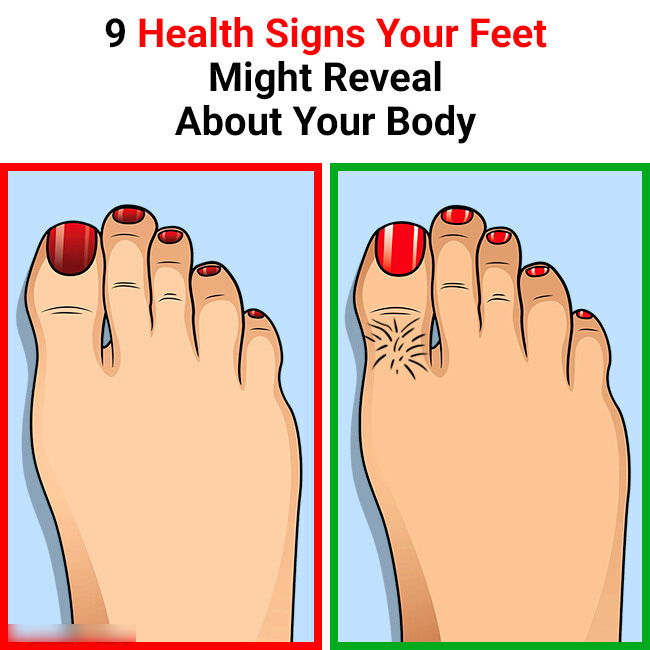
Your feet can provide important health indicators. Foot health is closely linked to your overall well-being, and noticing foot symptoms can help spot potential medical signs of underlying conditions. Changes in your feet, such as swelling, pain, or discoloration, might signal issues that need medical attention, offering a valuable opportunity for early diagnosis and treatment.
1. Dry and Peeling Skin
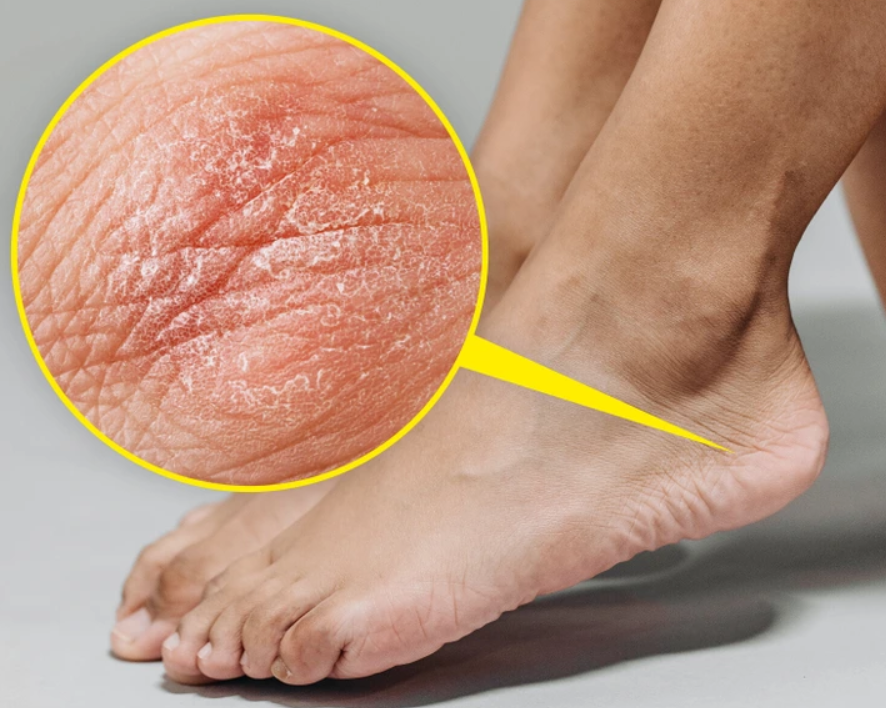
Dry, peeling skin on your feet is often seen as a result of a lack of care, but it could actually be a sign of a fungal infection. If left untreated, the skin can blister, and when those blisters burst, the infection can spread. If you suspect you have athlete’s foot, see a doctor to stop the fungus from growing, clear it up, and relieve your symptoms.
2. Foot Cramps
Foot cramps can hurt a lot, because of the fact that your muscles suddenly tighten and cause pain. This usually happens as you’re working out or if you’re dehydrated. However, if you’re getting cramps often, it could be because you’re low on calcium, potassium, or magnesium. In order to help, try eating more veggies, drinking water with minerals, and make sure to stretch your feet before bed.
Additionally, pregnant women often get these cramps because of all the hormonal changes they’re going through.
3. When the Hair on Your Toes Disappears
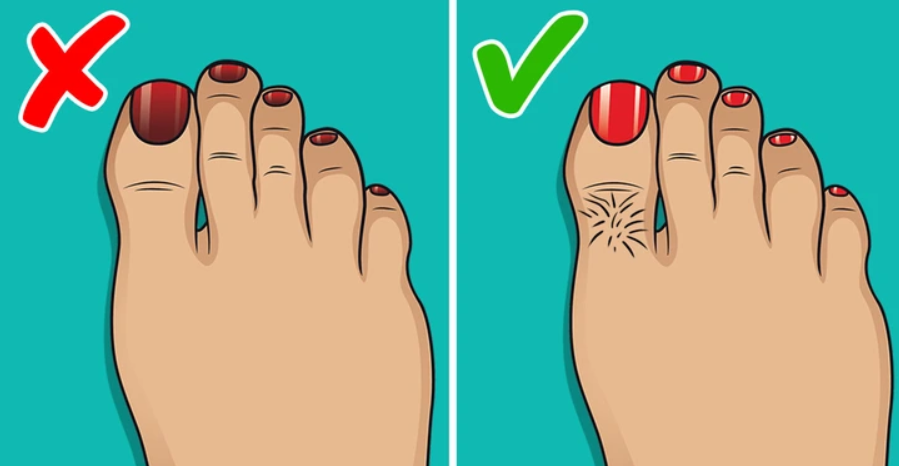
If you hair loss on your feet, it could be because of poor blood circulation. As circulation isn’t great, the body prioritizes vital organs over the extremities, like your toes. Hair loss can also be a sign of diabetes.
While hair on your toes might seem like a nuisance, it’s actually a sign of good circulation. Healthy blood flow to your feet helps with wound healing and sensation. So, having some toe hair is a good thing.
If you notice any changes, like new hair growth, moles, or blisters, you should mention it to your doctor.
4. Cracked heels
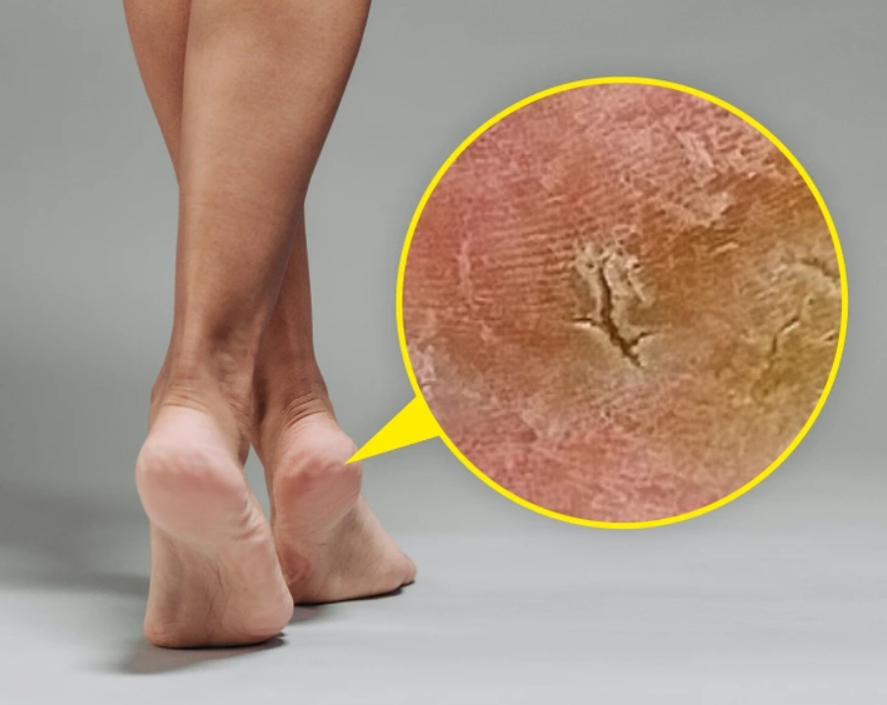
Dry, cracked skin around your heel or foot could be an indicator of thyroid problems. The thyroid is a gland that makes hormones to control parts of your body, so if your heels are really dry, it might be a good idea to check your thyroid.
Of course, dry skin can also just happen due to weather changes. But if you’re also experiencing weight gain or vision issues along with dry feet, it’s best to see a doctor.
Cracked heels usually start with dry, thick skin around the edge of your heel, known as calluses. When you walk, the fat under your heel expands, which can cause these calluses to crack.
Things that can make cracked heels worse include:
Standing for long periods
Walking barefoot or in sandals with an open back
Taking long, hot showers
Using harsh soaps that dry out your skin
Wearing shoes that don’t fit or don’t support your heels
Dry weather, like cold temperatures or low humidity
In case you don’t moisturize your feet often, they might dry out even more quickly.
5. Can Foot Problems Indicate Heart Disease?
Yes, foot problems can be a sign of heart disease. Issues like foot pain, swelling, or burning sensations can be linked to poor circulation, which is often caused by cardiovascular conditions such as peripheral arterial disease or high blood pressure.
These conditions reduce blood flow to the feet, causing discomfort, numbness, and even non-healing ulcers. In addition, symptoms like burning, swelling, or abnormal coloring in the feet can suggest underlying heart, kidney, or circulatory problems. It’s important to consult a podiatrist if you experience these signs, as they could be early indicators of heart disease or related health issues.
6. How Does Diabetes Affect Your Feet?
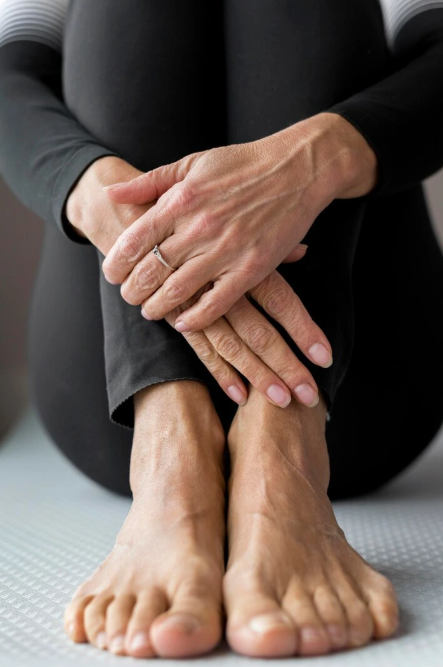
Diabetes can infuence your feet in a few ways. High blood sugar can result in nerve damage, leading to tingling, pain, or even loss of feeling in your feet. Without feeling, you may not notice small injuries like blisters or cuts, which can get infected. Also, diabetes can reduce blood flow to your feet, making it hard for infections or wounds to heal. This can cause serious problems, like gangrene, which may need amputation.
In order to keep your feet healthy, check them every day, wash and dry them well, wear proper shoes, and visit a podiatrist regularly. Managing your blood sugar is also key to preventing foot issues. Those with diabetes need to be extra careful with their feet. Diabetes affects around 1 in 10 Americans, and most people with it—about 60% to 70%—end up having nerve problems.
7. What Are the Causes of Numbness in Feet?
Numbness in your feet can be because of several conditions, like diabetes, sciatica, or nerve damage. As nerves are damaged or compressed, you may lose feeling in your foot, which can affect your balance. You might also feel pins-and-needles, tingling, or weakness.
If the numbness comes on suddenly with other symptoms like dizziness, confusion, or difficulty breathing, seek medical help right away. In case numbness makes you trip or worsens over time, make an appointment with your doctor. Be please ask your doctor for advice and treatment options.
8. Why Are My Feet Always Cold?
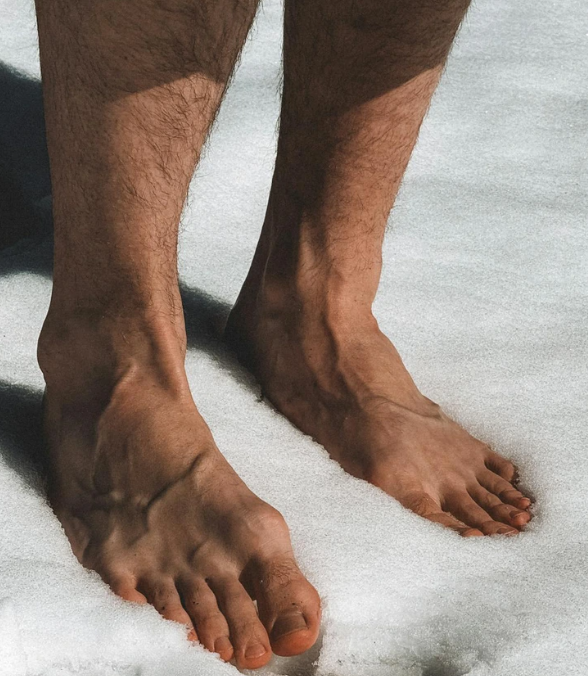
Cold feet can be caused by various factors. It may be linked to your circulation or an inherited trait. As your body gets cold, blood vessels in your hands and feet constrict, reducing blood flow to keep internal organs warm. Those with less body fat may feel colder.
Raynaud’s syndrome causes blood vessels to overreact to the cold, turning your feet blue, white, and red. Poor circulation from conditions like atherosclerosis can also lead to cold feet, making them appear blue or white, and causing pain in your legs when walking. Nerve damage (neuropathy) may make your feet feel cold, even if they’re not. If you’re concerned, consult your doctor to check for circulation or nerve issues.
9. Weight Gain and Foot Pain
It is important to maintain a healthy weight because weight gain is often connected to foot pain. In an APMA survey, 74% of people who were overweight and 81% of those with excess weight reported having foot problems.
CONTENT IS PROVIDED FOR INFORMATIONAL PURPOSES ONLY AND IS NOT INTENDED AS A SUBSTITUTE OF MEDICAL ADVICE. SEEK GUIDANCE OF YOUR DOCTOR REGARDING YOUR HEALTH AND MEDICAL CONDITIONS.


















